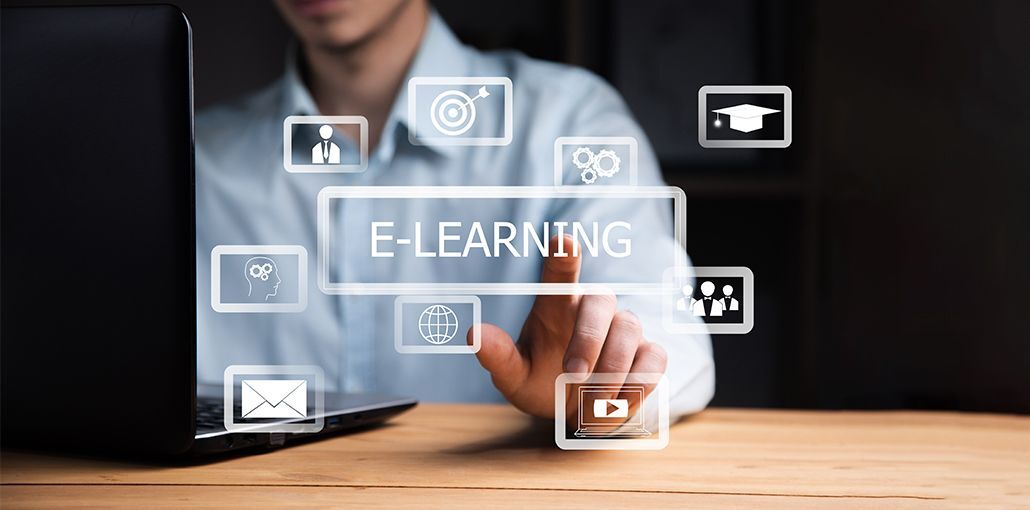Small and medium-sized enterprises (SMEs) grapple with multifaceted challenges, encompassing time constraints, financial limitations, and the pursuit of effective Learning and development (L&D) frameworks.
The integration of a cost-effective Learning Management System (LMS) is positioned as a critical solution, enabling SMEs to confront these obstacles head-on. Redefining training methodologies, the best learning management system streamlines operations and provides organizations with numerous immediate and enduring benefits.
The exponential growth trajectory of the global LMS market—from $18.7 billion in 2022 to an estimated $43.6 billion by 2027—undeniably showcases its indispensable nature.
Projections further amplify the ascent of the corporate LMS market, expected to reach $12.48 billion with an impressive compound annual growth rate of 23% from 2020 to 2024. Organizations can transform their training strategies by fusing the robust capabilities of Learning Management Systems (LMS) with the agility of SMEs.
5 Reasons Why SMEs and LMSs Fit Together
Here is a closer look at how this amalgamation propels organizations towards their goals.
1. Tailored Solutions for Limited Resources
The restriction of scarce resources is one of the biggest problems SMEs encounter. The integration of learning management systems provides a lifeline by offering specialized training solutions that fit within limited budgets.
These platforms provide reasonably priced training modules adaptable to the unique goals and objectives of the SMEs. LMS provides customized training routes that maximize effectiveness while lowering expenses, whether it is for upskilling current staff members or onboarding new hires.
2. Streamlining Onboarding and Employee Development
The foundation of a powerful LMS software training platform is the establishment of an efficient onboarding procedure that sets the stage for continued improvement. This state-of-the-art technology makes employee development and onboarding easier, creating a smooth path for organizational growth.
New hires can immediately improve vital skills like communication and presentation by accessing an extensive course library through the LMS. When used effectively, it fosters personal growth and produces a diverse and capable workforce.
The best LMS training platforms facilitate holistic employee growth, from skill enhancement to leadership training within smaller organizational setups.
3. Compliance and Regulatory Training Simplified
The best LMS training platforms simplify the tracking and monitoring of compliance training, ensuring SMEs adhere to industry-specific regulations without the burden of extensive administrative work.
This innovative system empowers HR and training managers to closely monitor new employees’ progress during onboarding, swiftly identifying any knowledge gaps or areas needing improvement. Tapping into continuous evaluation and data-driven insights aid in recognizing potential roadblocks or where additional support might be beneficial.
Also read: 5 Ways A Learning Management System For Businesses Can Help
The analytical prowess of a learning management system allows for a comprehensive analysis of trends and patterns, facilitating fine-tuning and optimization of onboarding content and delivery methods.
The system’s automated reporting tools generate audit trails, ensuring timely completion of training and reducing the risk of non-compliance through proactive notifications and reminders.
4. Centralized Learning Management
By combining all training resources under one easily accessible roof, the best learning management system revolutionizes learning in SMEs and provides customized advantages for efficient operations.
Ensuring consistent training, regardless of location or department, fosters a cohesive learning environment. SMEs use centralized learning in conjunction with a unified approach to training to provide staff members with the fundamental knowledge and abilities needed to carry out their roles effectively.
This consistency supports quality standards by filling in knowledge gaps and bringing people together around organizational policies and best practices. With a centralized learning management system, local workforces can receive consistent training delivery for onboarding new hires and career development.
Staff members can learn at their own pace, which is essential in the remote work environments and different time zones of today owing to its accessibility. SMEs have access to a single LMS software training platform for content organization, management, and distribution thanks to this central repository of learning resources.
5. Flexibility in Training Delivery
Whether it’s remote learning, microlearning, or other modern training methods, the best learning management system offers adaptable solutions that suit the unique needs of SMEs.
The dynamic nature of an online Learning Management System (LMS) offers unparalleled flexibility, granting employees the freedom to enhance their skills at their convenience, irrespective of location or time constraints.
Employees can embark on their learning journey anytime, anywhere, by utilizing online modules, mobile accessibility, and personalized learning paths tailored to individual needs. A customized learning management system enables the creation of adaptable training programs and ensures effective communication and engagement, fostering growth and development even in geographically dispersed teams.
This flexibility enables SMEs to optimize training programs, ensuring they align with their workforce’s preferences and schedules, maximizing engagement and learning outcomes.
Real-World Success Stories
Bethpage Federal Credit Union on Long Island used spreadsheets and manual processes at first for its Learning Centre. Later, it switched to an Access database to store training materials.
The management realized they needed true automation to maintain their dedication to providing outstanding customer service, so they looked far and wide for a Learning Management System (LMS).
They evaluated sixty possible solutions before reducing the field to just a few, with Gyrus Systems’ LMS Training WizardTM emerging as a strong contender. The implementation of the LMS has resulted in consistently surpassing Bethpage’s annual training goal of 35 hours per employee and much more.
Future-Proofing SMEs
Staying ahead of regulatory shifts and industry changes is paramount to safeguard the future of your SME. Forge strategic alliances with legal, commercial, and financial experts to remain informed and compliant with evolving laws and regulations.
Future-proofing extends beyond compliance- it is cultivating adaptability and resilience within your organization’s framework. Your SME can navigate uncertainties, ensuring sustainability and readiness for future challenges by proactively nurturing these relationships and embracing a mindset of agility.
Embracing scalable LMS systems allows SMEs to equip themselves to navigate industry changes, technological advancements, and evolving market demands, thereby positioning themselves for sustained success.
The Bottom Line
With increased training efficacy and long-term organizational growth promised, the expanding LMS market presents small businesses with a compelling opportunity to leverage this game-changing tool. There is no denying the symbiotic relationship between SMEs and learning management systems.
Discover Gyrus, the cloud-based, AI-driven learning management system (LMS) with personalized experiences, robust analytics, and easy-to-use features that promote SMEs’ expansion and operational excellence.










Leave a comment